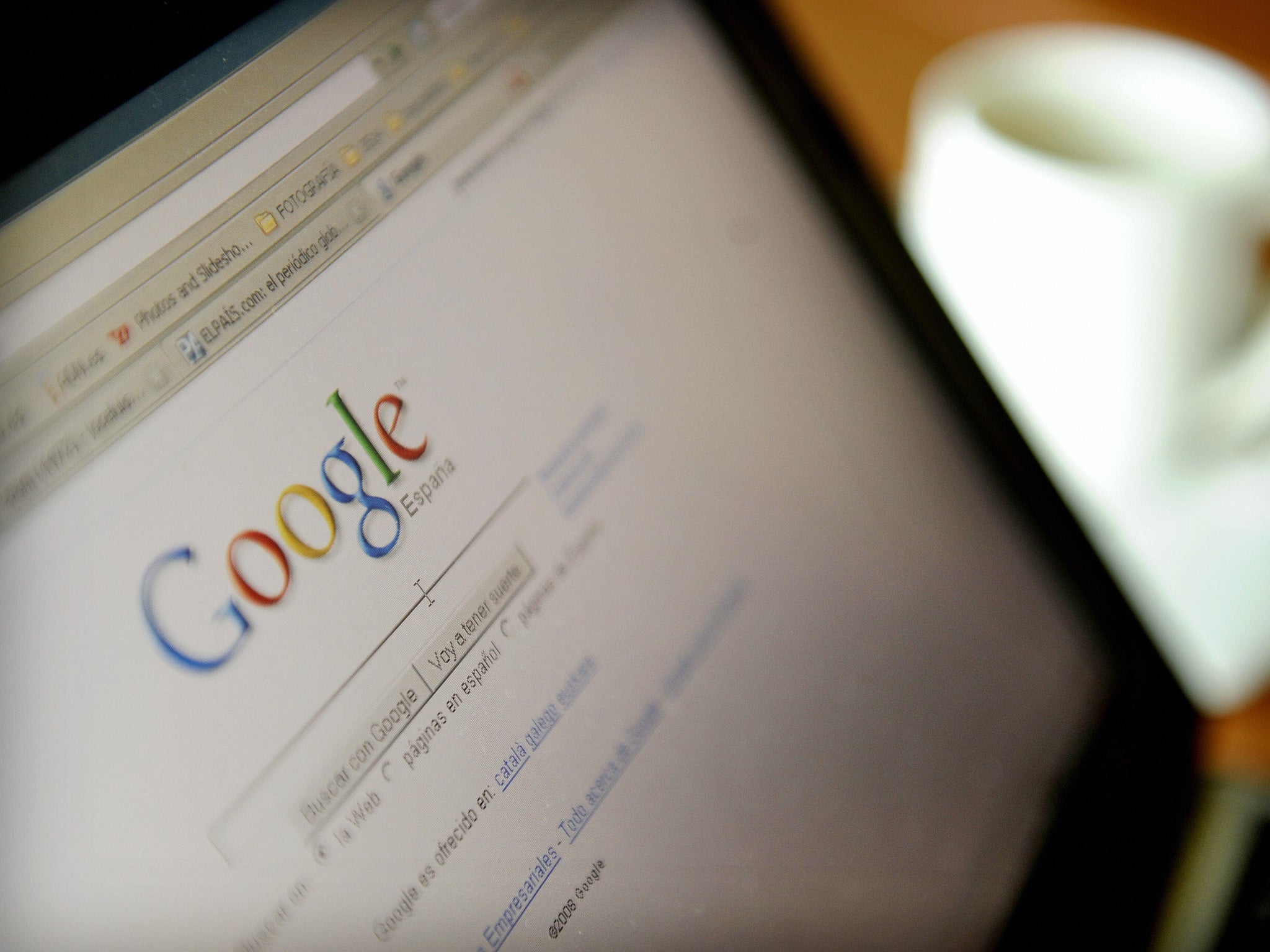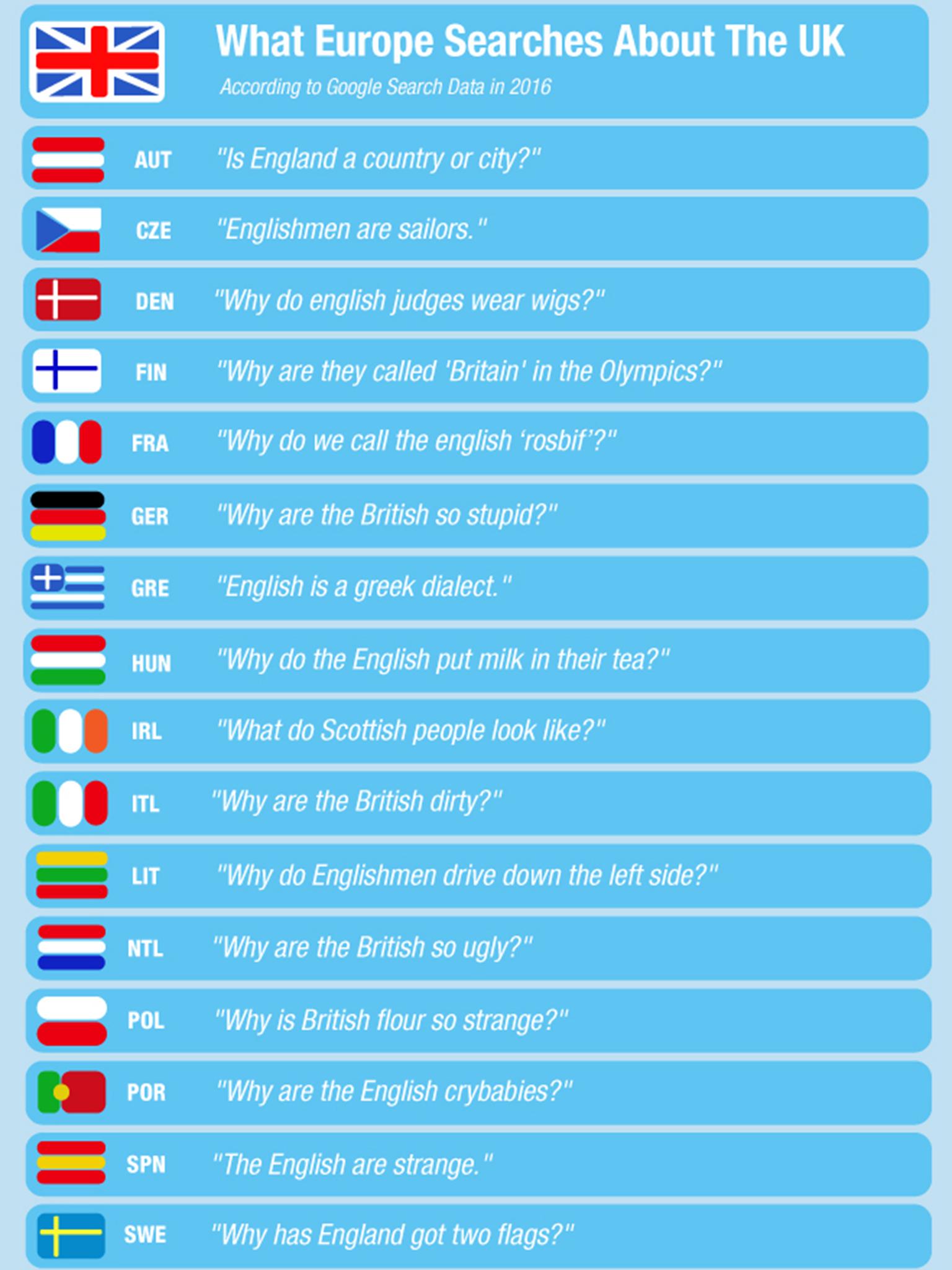The most common questions Europeans ask Google about Britain are mostly insulting
Our European neighbours often seem to want to know why we are 'so ugly', 'stupid' and 'dirty'

Your support helps us to tell the story
From reproductive rights to climate change to Big Tech, The Independent is on the ground when the story is developing. Whether it's investigating the financials of Elon Musk's pro-Trump PAC or producing our latest documentary, 'The A Word', which shines a light on the American women fighting for reproductive rights, we know how important it is to parse out the facts from the messaging.
At such a critical moment in US history, we need reporters on the ground. Your donation allows us to keep sending journalists to speak to both sides of the story.
The Independent is trusted by Americans across the entire political spectrum. And unlike many other quality news outlets, we choose not to lock Americans out of our reporting and analysis with paywalls. We believe quality journalism should be available to everyone, paid for by those who can afford it.
Your support makes all the difference.British people who often wonder what Europeans really think of them may wish they never asked – with the Dutch wondering why we are “so ugly” and Italians questioning why we are “dirty”.
A digital marketing company has found the top-rated search questions about the UK over the past year.
The searches appear on Google’s autocomplete function across Europe when the user starts to search the terms in each country.
Germans appear to take an equally dim view of the UK asking “why are the British so stupid?” and the Portuguese wanting to know why we are “such crybabies”.
Others were a little kinder and just wanted to know more about some of the peculiarities of British culture, such as the Danes who asked why our judges wear wigs in court.
The Finns wanted to know why the UK is known as Britain in the Olympics and the Swedes didn’t understand why the English “have two flags” - we actually have one and Great Britain has four if you count the flags of the individual countries within the union as well as the Union Flag.
Other questions were more peculiar, with Polish people taking exception to British flour - which they described as “strange” - and Greek people attempting to determine whether English was a “Greek dialect”.

The survey’s authors, Search Laboratory, tried to answer some of the European questions.
In response to the French query about why they called the English "rosbifs" they said: "The name 'Rosbif' dates back to around 1850. Perhaps unsurprisingly, it simply refers to the rather tame British cooking tradition of the roast joint of beef with vegetables.
"Known for their culinary skills, the French have been using this term ever since to poke fun at their neighbours across the channel."
It also disputed Germany’s claim that the British were stupid saying the average IQ in the UK is roughly comparable with the rest of Western Europe, but admitted it could be something to do with the UK’s school standards.
Finland, Poland, Germany and Austria all rank higher than the UK when it comes to school standards and 21 EU countries spend more on education, they said.
Join our commenting forum
Join thought-provoking conversations, follow other Independent readers and see their replies
Comments